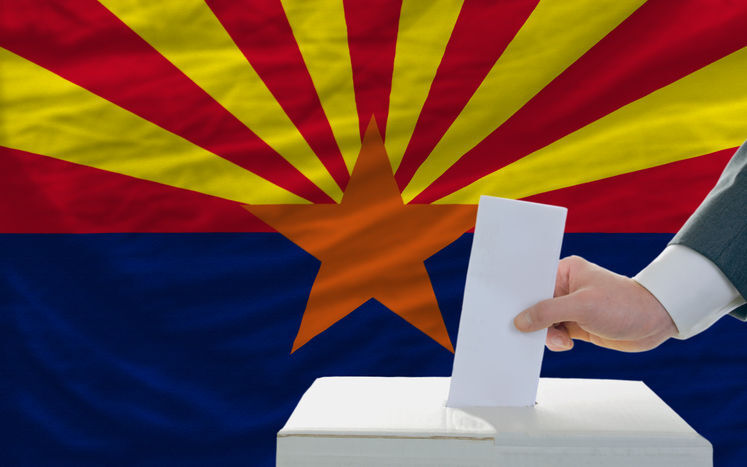A federal judge rejected the Pascua Yaqui tribe’s request that county officials locate an early-voting site on reservation land.
U.S. District Court Judge James Soto ruled late Thursday that attorneys for the tribe had not convinced him he should order Pima County Recorder F. Ann Rodriguez to set up such a site in this year’s election.
“While numerous members of the tribe testified that they preferred to vote in-person at an early voting site on the reservation, no tribal member testified that they would be unable to vote without an early voting site on the reservation,” the judge wrote in his 15-page order.
Instead, Soto said, the evidence was that a majority of tribal members living on the reservation already signed up to get early ballots in the mail. He said that provides them with ample opportunity to fill them out and send them back.
“Furthermore, the vast majority of tribal members on the reservation have a mailbox at their residence, and they regularly receive postal mail service at their respective residence,” Soto wrote. “In addition, the postage for voting by mail in Arizona is pre-paid, and as such, cost is not a barrier to voting by mail in Arizona.”
Soto acknowledged testimony that there is some “mistrust” about the mail system as well as concerns about fraud related to mail-in ballots. But that was not enough for him to order Rodriguez to restore the early-voting site on the reservation, which she said she abandoned after the 2016 election because so few people used it.
“There was no evidence that these fears were based on evidence of any limited or widespread mail-in voter fraud,” Soto said.
And even if that were true, he said, voters who receive early ballots have other options.
“They can simply fill out their ballot at home, go to the nearest early voting site, drop off their ballot in a box guarded by an election official, or hand it directly to an election official,” the judge said.
He also was unmoved by claims that 30% of tribal residents lack vehicles.
“The tribe is not without resources,” Soto said, citing the testimony of tribal officials.
“The tribe owns two casinos, has its own police and fire department, has a fleet of approximately 100 vehicles (including numerous vans) — some of which could be reconstituted for other purposes such as giving direct rides to tribal members to a polling site,” he wrote.
Soto also said Rodriguez’s office had informed tribal officials in July 2018 there would not be an in-person early-voting site on the reservation. Instead, the closest one would be at Mission Library in Tucson.
Yet the tribe waited until Oct. 13 of this year to file suit.
Put simply, the judge said, the challengers waited too long to bring the matter to him.
Tribal officials and their lawyers said they were disappointed in not just Soto's ruling but the decision by Rodriguez against having an early-voting site on the reservation.
"The Pima County recorder's decision not to reinstate an early voting site on the Pascua Yaqui Reservation has left Yaqui voters behind,'' said Danielle Lang, co-director of voting rights at the Campaign Legal Center, who argued the case.
As to the ruling, she said Soto had ample testimony that tribal members do not have the same access to early voting "that their white neighbors enjoy.''
"By deciding not to intervene, the court failed to protect a community that is simply fighting for equality,'' Lang said.
Tribal Chairman Peter Yucupicio expressed disappointment. And he said it's irrelevant that only a few people used the early-voting site in 2016.
"Pascua Yaqui voters' voices deserve to be heard — whether it's one vote or a thousand votes,'' he said.





